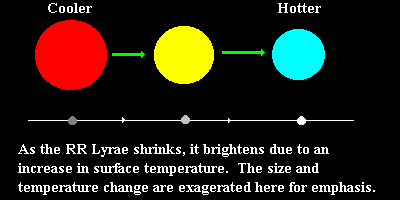BDanielMayfield wrote:Nitpicker wrote:Sun-like in the sense that they eventually form PNs, perhaps? That is, they have a mass range between 0.8 and 8 solar masses (according to Wikipedia).
That is how I read "sun-like" in this context too.
Planetary Nebulae wrote: Observation shows that most of the central stars are within a narrow mass range of 0.5 to 0.7 solar masses.
That's really interesting, and it does suggest that
Stein 2051 B is in fact a somewhat massive white dwarf.
I wonder how efficient these Sun-like stars are in returning left over gas (H & He) and metals (all other elements) back to space. Stars on the low 0.8 initial mass end haven't had nearly enough time to form PNs yet. The more massive a star is, the shorter its main sequence lifetime, but also the rarer the star is. And, since the PN phase is so fleeting, I wonder what can be inferred about the initial masses of the PN stars in that "narrow mass range of 0.5 to 0.7 solar masses." This suggests that normal stars are very efficient at returning all their unused gas back to space. They also must send a lot of C, N and O back to space too.
Bruce
Edited to strike out false statement. I was thinking 0.08, not 0.8 solar masses.
I don't think you should have struck that out. First of all, I think that the consensus among astronomers is that stars of only 0.08 solar masses will either never turn into planetary nebulas, or, alternatively, no one has the faintest idea what these tiny little critters will do when they are ready to hang up their sun hats some trillions or quadrillions years from now.
Second, as for stars of an initial mass of 0.8 solar masses, I believe that extremely few of them have had time to turn into white dwarfs surrounded by planetary nebulas.
I found an admittedly terribly old paper by Baum, W. A., Hiltner, W. A., Johnson, H. L., & Sandage, A. R, published in Astrophysical Journal, vol. 130, p.749.The paper is from 1959. Yes, I know. But here's part of what they wrote in their abstract:
M13. Photo: Tim Christensen.
Baum, W. A., Hiltner, W. A., Johnson, H. L., & Sandage, A. R, wrote:
Comparison of the resulting color-magnitude diagram of M13 with the main sequence of the Hyades gives a distance modulus to M13 of
m - M = 14.3 ± 0.3. The corresponding absolute magnitude of the RR Lyrae stars in M13 is
Mv = +0.3 ± 0.3. The turnoff point of the main sequence occurs at
Mbol = +4.1 ± 0.3, which corresponds to an age of about 10
10 years, according to the models of Hazelgrove and Hoyle.
Yes, I know - this paper is just too old to be taken all that seriously. Let's look at what it said, nevertheless. The authors said that M13 is 10
10 years, which would be the same as 10 billion years. Not too shabby. However,
Wikipedia says that the average luminosity of RR Lyrae stars is about +0.75, or about 40 to 50 times brighter than the Sun. That's a lot fainter than the 1959 estimate of an absolute magnitude for the M13 RR Lyrae stars of +0.3. (I must protest against Wikipedia, though: Vega, the well-known first-magnitude A0-type main sequence star, has an absolute visual magnitude of 0.6036 ± 0.0060, which corresponds to 47.71 ± 0.26 solar luminosities. So the average luminosity of RR Lyrae stars, if they are as bright as Vega, should be +0.6, not +0.75.)
Well, if that 1959 paper overestimated the brightness of the M13 RR Lyrae stars, it would also have overestimated the brightness of the M13 stars at the turning point of the main sequence. Baum, Sandage et.al. estimated that the absolute magnitude of the M13 stars at the turning point of the main sequence was +4.1 ± 0.3.
Okay, but guess what the absolute magnitude of the Sun is? It is 4.83, a lot
fainter than the M13 stars that are just about to leave the main sequence! And if we say that the paper overestimated the RR Lyrae stars by 0.45 magnitudes and overestimated the main sequence stars by the same amount, then the absolute magnitude of the stars about to leave the main sequence in M13 is about 4.55 ± 0.3, still at least as bright as the Sun and probably brighter!
And according to
Wikipedia, the RR Lyrae stars themselves are evolved stars that started out as main sequence stars of 0.8 solar masses. So the 0.8 solar mass stars in M13,
which is 11.65 billion years old, have not yet turned into white dwarfs with planetary nebulas. The 0.8 solar mass stars may not be Methuselahs, but I believe most of them are
still going pretty strong!
Ann
 M27: Not a Comet
M27: Not a Comet

